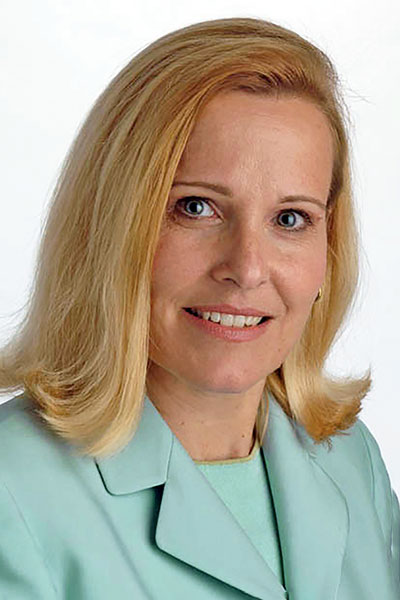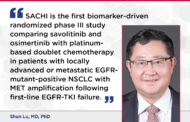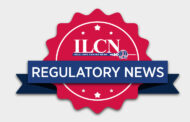On December 5, the IASLC announced it was teaming up with the Lung Cancer Research Foundation (LCRF) to create a $2.5 million, 4-year research partnership focused on finding cure for oncogene-driven lung cancer.

The partnership, which is called the IASLC-LCRF Team Science Research Grant on the Next Step in the Cure of Oncogene-Driven Lung Cancers, will focus on furthering the development of novel therapies, including immunotherapeutic approaches, for patients with oncogene-driven lung cancers. According to IASLC, it is the intent of the two organizations to fund work that will have the potential to increase survivorship and have a near-term benefit for these patients.
“We, along with LCRF, recognize that it takes teams of people to address large, complicated problems like oncogenic-driven lung cancers and resistance to therapy,” said IASLC CEO Karen Kelly, MD. “We’re pleased to be collaborating with LCRF to create this Team Science award to work on curing oncogenic-driven lung cancers.”
LCRF Chief Scientific Officer Antoinette Wozniak, MD, agreed.

“Resistance in oncogene-driven lung cancers is a frustrating inevitability for these patients,” she said. “Partnering with IASLC on funding research that will bring us closer to a cure is not only exciting; it is the right thing to do. We firmly believe that it is in working together—funders as well as researchers—that solutions will be discovered, and survivorship will increase.”
The Team Science Research Grant is expected to provide $2.5 million for a period of 4 years to a team of researchers whose proposals have closely integrated projects focused on the specific goal of curing oncogene-driven lung cancer that would not otherwise be realized by any single component of the team.
All applications will be subject to a rigorous review by IASLC’s Scientific Affairs Committee and LCRF’s Scientific Advisory Board. More details about the request-for-proposal process, along with eligibility, requirements, and deadlines will soon be available at LCRF.org/FundingOpportunities.
In November, the IASLC established another partnership—this one aimed at addressing global lung cancer challenges. The IASLC Partners for Thoracic Cancer Care initiative brings together IASLC member experts and industry partner representatives to collaborate on solutions to big-picture challenges facing those working to conquer lung cancer and other thoracic malignancies.
According to the association, IASLC Partners’ initial projects will focus on biomarker testing because of its importance in accurately diagnosing lung cancer.
“When available, molecularly targeted therapies provide the best outcomes for patients who have advanced-stage non-small cell lung cancer (NSCLC) with driver mutations, but their use depends on timely identification of oncogenic drivers through biomarker testing,” Dr. Kelly said.
She added that it is important to recognize that personalized therapy is not only about giving the right therapy but also about avoiding the wrong therapy, which could be harmful to a patient.
Evidence-based international guidelines from the College of American Pathologists, the IASLC, and the Association for Molecular Pathology have recommended biomarker testing for all patients with advanced-stage non-squamous NSCLC since 2013, with a revision in 2018 and a pending revision expected in 2024.
In 2021, IASLC presented results from a survey of biomarker use among thousands of members and nonmembers worldwide. These results show substantial deficits in awareness of and adherence to current guidelines. Many respondents (33%) were not aware of the 2018 guidelines. Respondents estimated that fewer than 50% of patients with lung cancer receive molecular testing, and many who are tested may receive testing only for EGFR and ALK molecular markers. In addition, respondents expressed dissatisfaction with the current state of molecular testing for lung cancer in their countries and frequently reported no strategy to improve molecular testing.

The IASLC Partners’ first project will be to conduct a new global survey to determine biomarker testing uptake for lung cancer among healthcare providers around the world. The survey also aims to characterize patterns of adoption and take a deeper dive into the barriers to adoption of biomarker testing for lung cancer.
Matthew Smeltzer, PhD, the lead epidemiologist for the 2020 and 2024 surveys, said the association anticipates data from this survey will lead to a subsequent project on devising an implementation toolkit for biomarker testing.
“There have been exciting advances in biomarker-driven therapies for individuals with lung cancer since the time of the first IASLC survey,” Dr. Smeltzer said. “The new survey will help us understand how biomarker testing practices have evolved for late-stage lung cancer, the state of testing in early-stage lung cancer, and more details about barriers to optimal testing that could inform solutions.”





